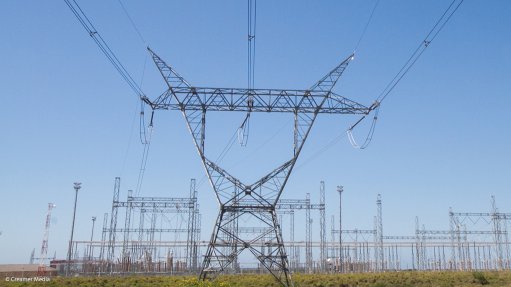EU electricity demand expected to reach two-decade low
The International Energy Agency (IEA) has said the European Union (EU) is likely to experience a decline in electricity demand to the lowest level in two decades.
However, the expansion of renewable energy sources in 2024 is deemed more crucial than ever owing to the expected sharp rise in global consumption.
According to the IEA's most recent 'Electricity Market Report', there is an expectation for global power demand growth to decrease this year, driven by the ongoing consequences of the global energy crisis and a slowing economy in advanced countries.
Published on July 19, the report projects that electricity demand in the US will decline by nearly 2% this year, while Japan's demand is forecasted to fall by 3%. Similarly, the EU's electricity demand is set to drop by 3%, mirroring the decrease observed last year. Together, these two consecutive declines represent the EU's largest slump in demand on record, leading to a poised drop in EU electricity consumption to levels last seen in 2002.
Consequently, the global electricity demand is expected to increase by just under 2% this year, a decrease from the 2.3% growth rate observed in 2022. However, an improved world economic outlook is expected to result in a resurgence of demand growth in 2024, with an expected rebound to 3.3%, according to the IEA's latest projections.
The rise in global electricity demand is still widely supported by the electrification of energy systems, efforts to reduce emissions, the increasing use of indoor cooling with rising temperatures, and robust demand growth in emerging and developing economies, according to the IEA report.
China's demand is expected to increase at an average yearly rate of 5.2% over the next two years, slightly below its 2015 to 2019 average. India's average yearly demand growth through 2024 is estimated at 6.5%, significantly surpassing its 2015 to 2019 average.
Despite the expansion of demand in various regions, the strong global deployment of renewable energy sources indicates that they are on track to meet all the additional growth in global electricity demand over the next two years. By 2024, renewables are projected to account for more than one-third of global electricity generation. It is even possible that 2024 might mark the first year in which electricity generated worldwide from renewables exceeds that from coal, depending on weather conditions.
Meanwhile, electricity generated from fossil fuels is expected to decrease over the next two years. Electricity generated from oil is projected to experience a significant fall, while coal-fired generation will slightly decline this year and in 2024, following a rise of 1.7% in 2022.
“The world’s need for electricity is set to grow strongly in the years to come. The global increase in demand through 2024 is expected to amount to about three times the current electricity consumption of Germany. We’re encouraged to see renewables accounting for a rising share of electricity generation, resulting in declines in the use of fossil fuels for power generation. Now is the time for policy makers and the private sector to build on this momentum to ensure emissions from the power sector go into sustained decline,” IEA energy markets and security director Keisuke Sadamori said.
The IEA has observed a noteworthy indication of the energy transition's progress, as electricity generated from fossil fuels is declining in four out of the six years between 2019 and 2024. Historically, declines in fossil-fired generation were uncommon and mainly occurred after global energy and financial shocks, which resulted in suppressed global electricity demand. However, recently, electricity generated from fossil fuels has either been stagnant or decreased, even during periods of expanding electricity demand.
This trend signifies that the world is rapidly approaching a crucial point where global electricity generation from fossil fuels will progressively be replaced by clean energy sources, as emphasised in the report.
Specifically, the report delves into the factors that have contributed to the decline in electricity demand in the EU. The bloc's energy-intensive industries have not fully recovered from the production slump experienced in the previous year.
About two-thirds of the net reduction in EU electricity demand in 2022 is attributed to energy-intensive industries struggling with elevated energy prices following Russia's invasion of Ukraine. This trend has persisted into this year, despite energy commodity and electricity prices falling from their previous highs.
Article Enquiry
Email Article
Save Article
Feedback
To advertise email advertising@creamermedia.co.za or click here
Comments
Press Office
Announcements
What's On
Subscribe to improve your user experience...
Option 1 (equivalent of R125 a month):
Receive a weekly copy of Creamer Media's Engineering News & Mining Weekly magazine
(print copy for those in South Africa and e-magazine for those outside of South Africa)
Receive daily email newsletters
Access to full search results
Access archive of magazine back copies
Access to Projects in Progress
Access to ONE Research Report of your choice in PDF format
Option 2 (equivalent of R375 a month):
All benefits from Option 1
PLUS
Access to Creamer Media's Research Channel Africa for ALL Research Reports, in PDF format, on various industrial and mining sectors
including Electricity; Water; Energy Transition; Hydrogen; Roads, Rail and Ports; Coal; Gold; Platinum; Battery Metals; etc.
Already a subscriber?
Forgotten your password?
Receive weekly copy of Creamer Media's Engineering News & Mining Weekly magazine (print copy for those in South Africa and e-magazine for those outside of South Africa)
➕
Recieve daily email newsletters
➕
Access to full search results
➕
Access archive of magazine back copies
➕
Access to Projects in Progress
➕
Access to ONE Research Report of your choice in PDF format
RESEARCH CHANNEL AFRICA
R4500 (equivalent of R375 a month)
SUBSCRIBEAll benefits from Option 1
➕
Access to Creamer Media's Research Channel Africa for ALL Research Reports on various industrial and mining sectors, in PDF format, including on:
Electricity
➕
Water
➕
Energy Transition
➕
Hydrogen
➕
Roads, Rail and Ports
➕
Coal
➕
Gold
➕
Platinum
➕
Battery Metals
➕
etc.
Receive all benefits from Option 1 or Option 2 delivered to numerous people at your company
➕
Multiple User names and Passwords for simultaneous log-ins
➕
Intranet integration access to all in your organisation


















